|
|
NPN Editor-in-Chief Richard Bernabe recently interviewed Utah-based photographer, Guy Tal. Guy is no stranger to NPN. His powerful images of the American West and the thousands of thoughtful responses to the images of others have been a constant in the NPN image forums for many years. Guy is a widely published nature photographer and author, gallery owner, and passionate advocate for the environment.
Guy, your images seem to project a strong connection to the land and natural world. When and how did this connection develop?
Being out in natural surroundings was part of my life for as far back as I can remember. I grew up in what was then a small town surrounded with fields and orchards where I loved to play and explore. I am also thankful to my parents who were very encouraging and understanding as I spent hours each day outside and would often bring home interesting finds, from rocks to orphaned animals. My love of natural things is perhaps the one thread that ties everything I have ever done or ever been.
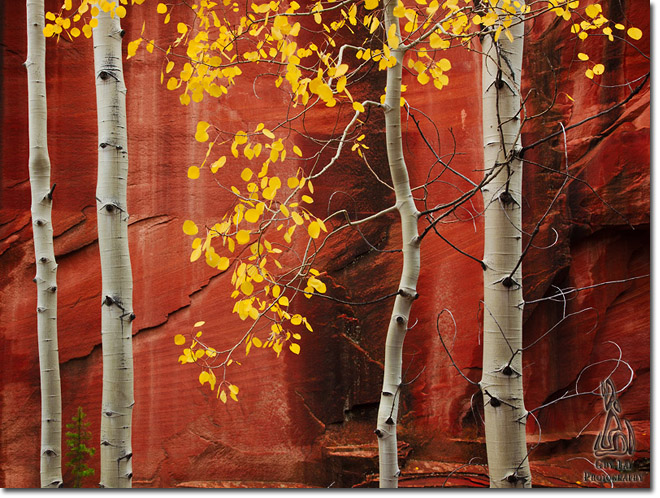
Why did you choose photography as the medium with which to express that connection?
I can't really say that it was a deliberate choice. When I was a teenager, out of pure curiosity, I borrowed a camera and went for a walk in the field. I found myself pointing the lens at just about everything from flowers and bugs to trees and interesting patterns. Since that time the camera became an extension of my experiences in the wild. I later saved some money and bought my first SLR: a Nikon F3, with a 55mm macro lens and 70-210mm zoom and rather than just bringing a camera along on random trips, I started planning trips specifically for the purpose of making images. At the time it was not about expressing any deep thoughts or meanings, it was about the sheer joy of studying the world in detail and being able to share some of my interesting finds. Every so often I'd invite friends over for a slide show using an old Kodak carousel projector and that was pretty much what photography was all about for me in those days. It was not until much later that I began thinking about photography as capable of communicating more than just simplistic documentary images. I wish I could say it was an eye opening revelation but in truth it took me a long time to let go of the incessant trophy chase and transition to a more contemplative and expressive style. In reality, it was part of my own journey of personal discovery and growth that propagated to every other aspect of my life, including photography. When I realized what I could achieve with my images beyond mere eye candy I also realized that I was no longer satisfied with documentary images and my goal shifted into creating art from the places and experiences that shaped my life. Photography just happened to be the most effective medium for the job.
Did you ever practice any other type of photography besides nature?
I have not. Other than family snapshots I never felt the urge to photograph anything else and in fact I feel awkward and self conscious when asked to photograph other things. If I don't make a deep emotional connection with my subject, the results are never satisfactory to me.
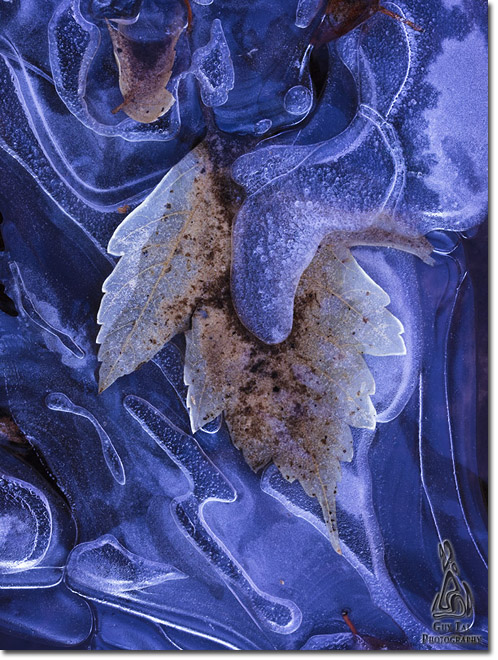
What is your general photographic philosophy? When you go out into the field to "do photography" what exactly are you trying to accomplish?
I rarely go out anymore with the sole purpose of practicing photography. When I did, my goals were pretty superficial: I wanted to find something interesting to photograph and I wanted to come home with images that would earn me bragging rights. After several years of doing that I found that my appreciation for time spent outdoors became entirely dependent on the images I came back with and I became bored with the repetitive sunrise/sunset routine. I also lost my ability to simply appreciate the experience itself rather than how I could capture it with my camera. I found myself missing the excitement I remembered from my younger days when every opportunity to be out was a chance to explore, to experience, to discover, regardless of images. I almost gave up photography at that point but still couldn't bring myself to head out without my camera. I'm glad I decided to stick with it. I did change my attitude, though. When I go out today it is in search of experiences. These can be as simple as wanting to smell a field of sagebrush after a rain or sit by a campfire in a remote camp site in the desert and admire the stars, or as meaningful as spending time with close friends or breaking away from the routine for a while to think and heal. The images come when they come. And when they do, they come as much from within as from the place I happen to be, and tell stories (at least to me) that transcend just another scenic view.
Having one’s own brick-and-mortar gallery is a dream for most photographers. For those with aspirations of doing the same, what are some unexpected rewards and challenges you’ve experienced during this undertaking?
Perhaps the most rewarding thing about it is being there in person to see people as they study your work and get an immediate sense of how it affects them. This is impossible to do online. It also reinforced my suspicion that most people who view images on the Internet are fellow photographers and represent only part of the audience I wanted to reach. The gallery attracts just about anyone who happens to be passing by. I learned a lot about how people who are not avid photographers perceive my work and photography in general. And, being in a very remote little town in the middle of a wild and beautiful desert which attracts tourists from all corners of the globe, I also had some of the most interesting encounters and conversations with visitors.
The challenges are for the most part the same as any other small retail business in a tough economy. Sales can ebb and flow but the bills are always there, Also, time spent working at the gallery is time not used for other activities, so I had to come up with a way to better balance my schedule. I can also say that predicting what will sell and what will not had been a challenge. As much as I may like or dislike a given work seems to have almost no correlation with what someone else may decide to buy so there's a fair amount of trial and error. All things considered, though, it is extremely rewarding.
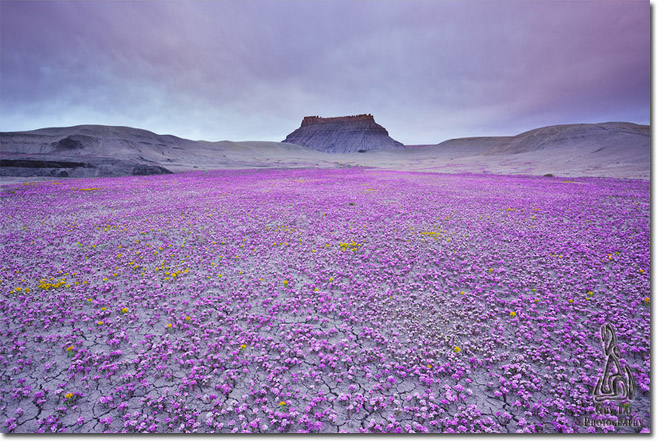
What are your thoughts on the accelerated advances in digital imaging and technology and how it might affect the future of nature photography?
I have to admit my own views on the subject have evolved over the years. Having used large format equipment almost exclusively for several years before the first DSLRs became available, I was very skeptical about their ability to meet my expectations in terms of image quality. But, technology advanced at an astounding pace and digital capture today not only meets but in many ways exceeds the capabilities of film. I still consider my view camera the best tool for the job and as long as there were no alternatives, slide film seemed the ideal medium for recording the landscape. Now that digital capture can provide the quality I need, it is easy to see that film had really always been more of a handicap than anything else - a necessary evil. In the end, good photography is about things that have nothing to do with technology: subject matter, composition, light, emotion, beauty. There is nothing inherently "better" about either film or digital sensors in conveying these. I think Henri Cartier Bresson said it best: "Photography has not changed since its origin except in its technical aspects, which for me are not important."
In a recent post to your photo journal, you write about making images with meaning rather than images that make you happy. Can you elaborate for those who would say their primary motivation for photography is just having fun?
There's nothing wrong with just having fun. It's when one comes to consider their work in terms of art or personal expression that fun should take a back seat to more important factors. As an example, many of us may type random messages to social media sites for fun but if you decide to pursue a calling as a novelist, your approach to writing will be vastly different and fun will not be your primary consideration when sitting down at the keyboard. Meaningful achievements require hard work and the journey is never one of constant joy. In fact for many, creativity may require struggling with difficult questions and may peak at times of great hardship and sadness. Certainly there is no need for anyone to seek misery in order to create meaningful work, but at the same time fun should not be the primary goal behind their work. The rewards of having accomplished something great, of having created a work of importance, is far greater than the simple pursuit of fleeting pleasures.
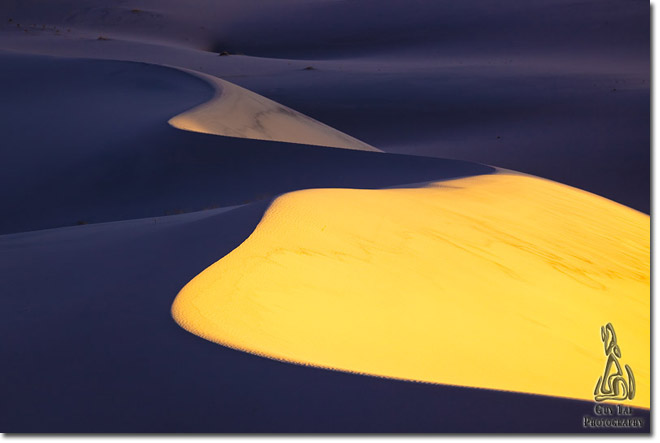
What do you see as being your most satisfying accomplishment so far in the field of photography?
Photography became a driving force in my life. It introduced me to beauty, knowledge, places and people I would otherwise have never known. My greatest accomplishment is having arrived at a point where I am living a life that is immensely rewarding to me and where I have reason to be grateful every single day.
Do you have a favorite non-essential piece of camera gear or technology?
I keep at least one hotshoe bubble level in every pack, and a couple in my car. For whatever reason I seem to lose them all the time and buy more of them each year. I find them very useful not only for keeping my images leveled but for aligning multiple exposures for stitching. Along with the bubble levels I also keep multiple keychain LED flashlights in every pack I have. They have proven very useful on many occasions, both for camera work in the dark and in emergencies.
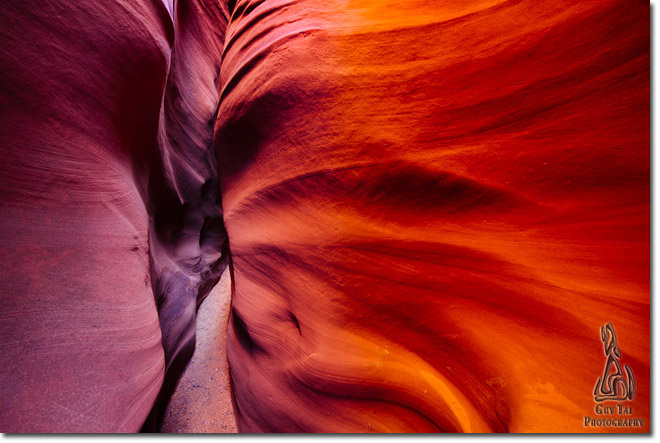
Where would you like to see your photography career five years from now?
My current goal is to dedicate more time to writing. I'd like to release several titles in the coming few years that will venture beyond mere technique. Photography in general and nature photography in particular are still in their infancy as forms of art and still not as widely accepted as other disciplines. If I'll be so fortunate as to leave any kind of legacy, I'd like to play a part in helping promote a broader understanding of photography as a means of creating expressive art.
Comments on NPN nature photographer interviews? Send them to the editor. NPN members may also log in and leave their comments below.
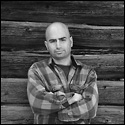 Guy Tal is a naturalist, photographer and author residing in the state of Utah, in the heart of a unique and scenic desert region known as the Colorado Plateau. Guy choses nature photography as a way of capturing and sharing the beauty, power, and fragility of wild places and the life that inhabits them, so that those who have become mired in the man-made chaos may open their eyes to the real world. You are invited to see more of Guy's images and writings at his web site: guytal.com.
Guy Tal is a naturalist, photographer and author residing in the state of Utah, in the heart of a unique and scenic desert region known as the Colorado Plateau. Guy choses nature photography as a way of capturing and sharing the beauty, power, and fragility of wild places and the life that inhabits them, so that those who have become mired in the man-made chaos may open their eyes to the real world. You are invited to see more of Guy's images and writings at his web site: guytal.com.
Guy recently published some of his thoughts in an eBook titled Creative Landscape Photography, which is available for purchase at his web site.